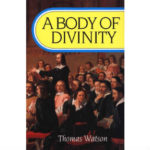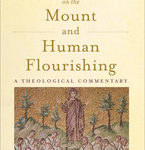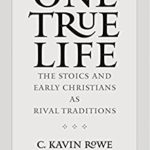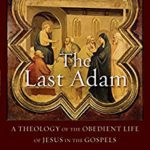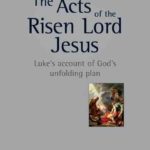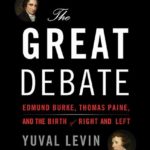Watson, Thomas. A Body of Divinity. 1692; Reprinted, Carlisle, PA: Banner of Truth, 1965.
This is theology that is solid in its doctrinal content and warm in its exhortation. This is doctrine to be both believed and lived. See full review.
Watson, Thomas. The Beatitudes. 1660; Reprinted, Carlisle, PA: Banner of Truth, 2014.
I found this the most valuable of the sources that I read on the Beatitudes this year. Watson writes with a whole Bible awareness. He also applies as well as exposits the Beatitudes. See full review.
Hays, Richard B. Echoes of Scripture in the Gospels. Waco, TX: Baylor University Press, 2016.
The great value of this book are the numerous connections between the OT and the Gospels that it lays bare. Chief among these connections are those which show the Gospel writers’ conviction that Jesus is truly God. See full review
Pennington, Jonathan. The Sermon on the Mount and Human Flourishing: A Theological Commentary. Grand Rapids: Baker, 2017.
Pennington’s discussion of the biblical teaching about human flourishing and his discussion about the structure of the Sermon on the Mount are the most valuable parts of this book. HIs discussion of blessedness/flourishing is superb, and I think he is right to see human flourishing as central to the Bible’s theology, though this needs to be linked to the glory of God: to glorify God and to enjoy him forever. See full review.
Rowe, C Kavin. One True Life: The Stoics and Early Christians as Rival Traditions. New Haven: Yale University Press, 2016.
I picked this book up to understand more about Stoicism, and it met that goal, but its great value was in highlighting common errors in the way that comparative religion studies are carried out. Rowe persuasively makes the case that Stoicism and Christianity are incommensurable worldviews. See full review.
Crowe, Brandon D. The Last Adam: A Theology of the Obedient Life of Jesus in the Gospels. Grand Rapids: Baker, 2017.
Crowe’s goal in the book is to demonstrate that the Pauline identification of Jesus as the Last Adam and the theological concept of active obedience are both rooted in the Gospels (and linked ideas). I think he succeeded admirably in his goals, and this book gave me a better understanding of the Gospels. See full review.
Jeffery, Steve, Micahel Ovey, and Andrew Sach. Pierced for Our Transgressions: Rediscovering the Glory of Penal Substitution. Crossway, 2007.
This is a superb defense of penal substitutionary atonement. It is also a model for how to do exegetically-rooted, historically-informed, practically-aimed systematic theology. See full review.
Thompson, Alan J. The Acts of the Risen Lord Jesus: Luke’s Account of God’s Unfolding Plan. New Studies in Biblical Theology. Edited by D. A. Carson. Downers Grove: InterVarsity, 2011.
I don’t think there is a better theology of the book of Acts at present. See full review.
Levin, Yuval. The Great Debate: Edmund Burke, Thomas Paine, and the Birth of Right and Left. Basic Books, 2014.
This is an excellent work on the thought of Burke and Paine. While Burke’s view of Christianity tended toward civil religion, on a number of points his thought aligns admirably with Christian thought, namely his emphasis on the need to reckon with the giveness of government instead of trying to probe its origins (think: Romans 13), the fact that nature and convention are not to be pitted against each other (think: God created a world with creational norms but also commanded humans to exercise dominion in harmony with those norms), and the importance of family to society. See full review.
Austen, Jane. Mansfield Park.
Along with Sense and Sensibility,this is now one of my favorite Austen novels. It raises moral questions well worth long meditation.

